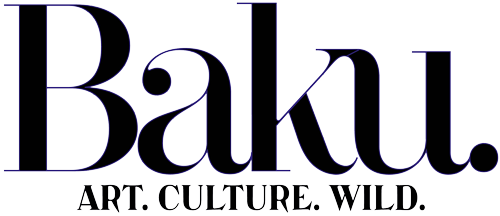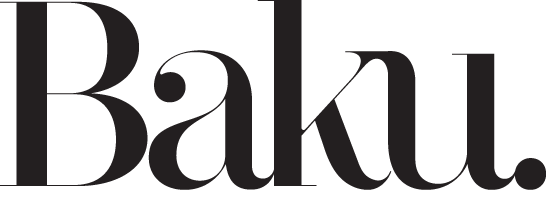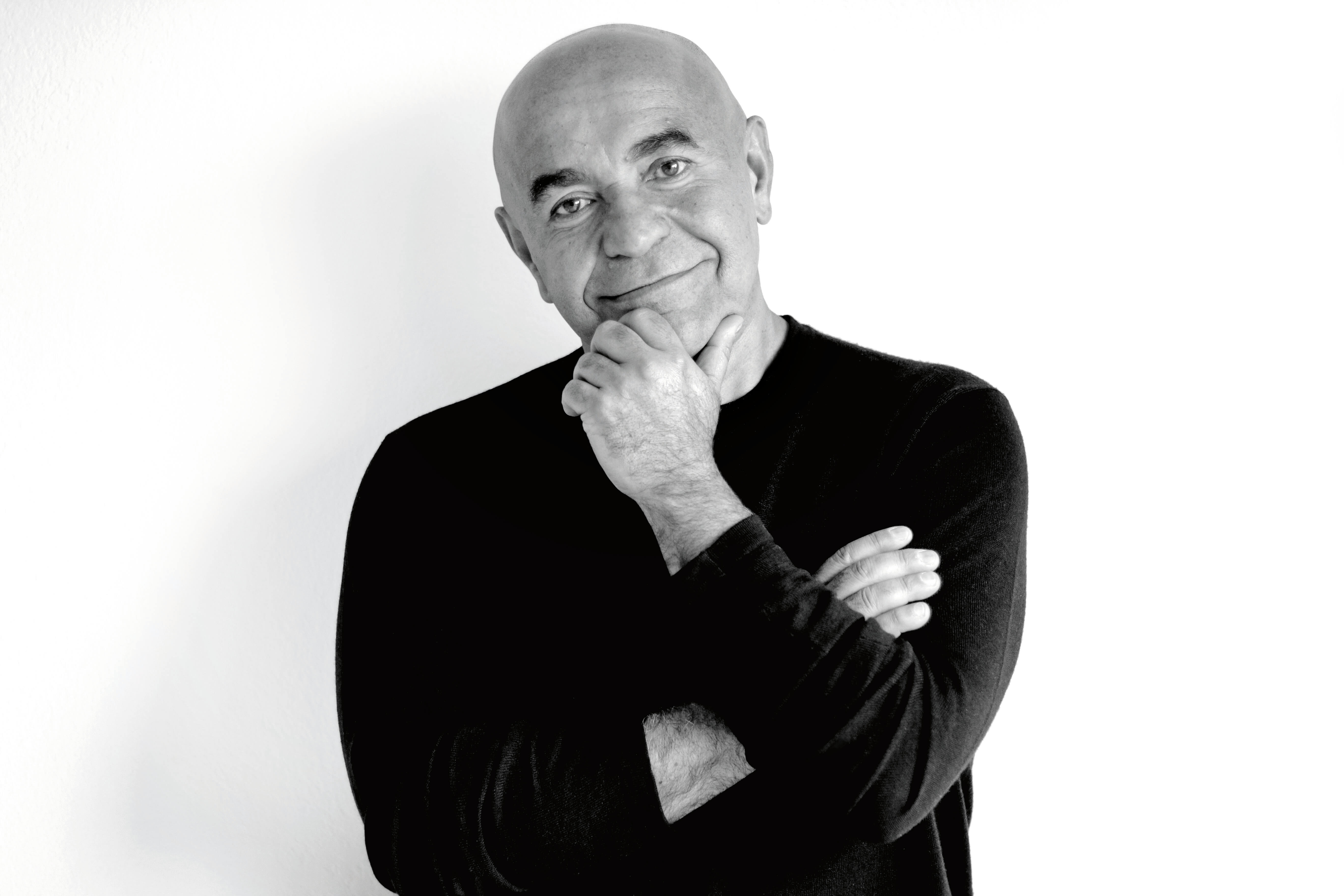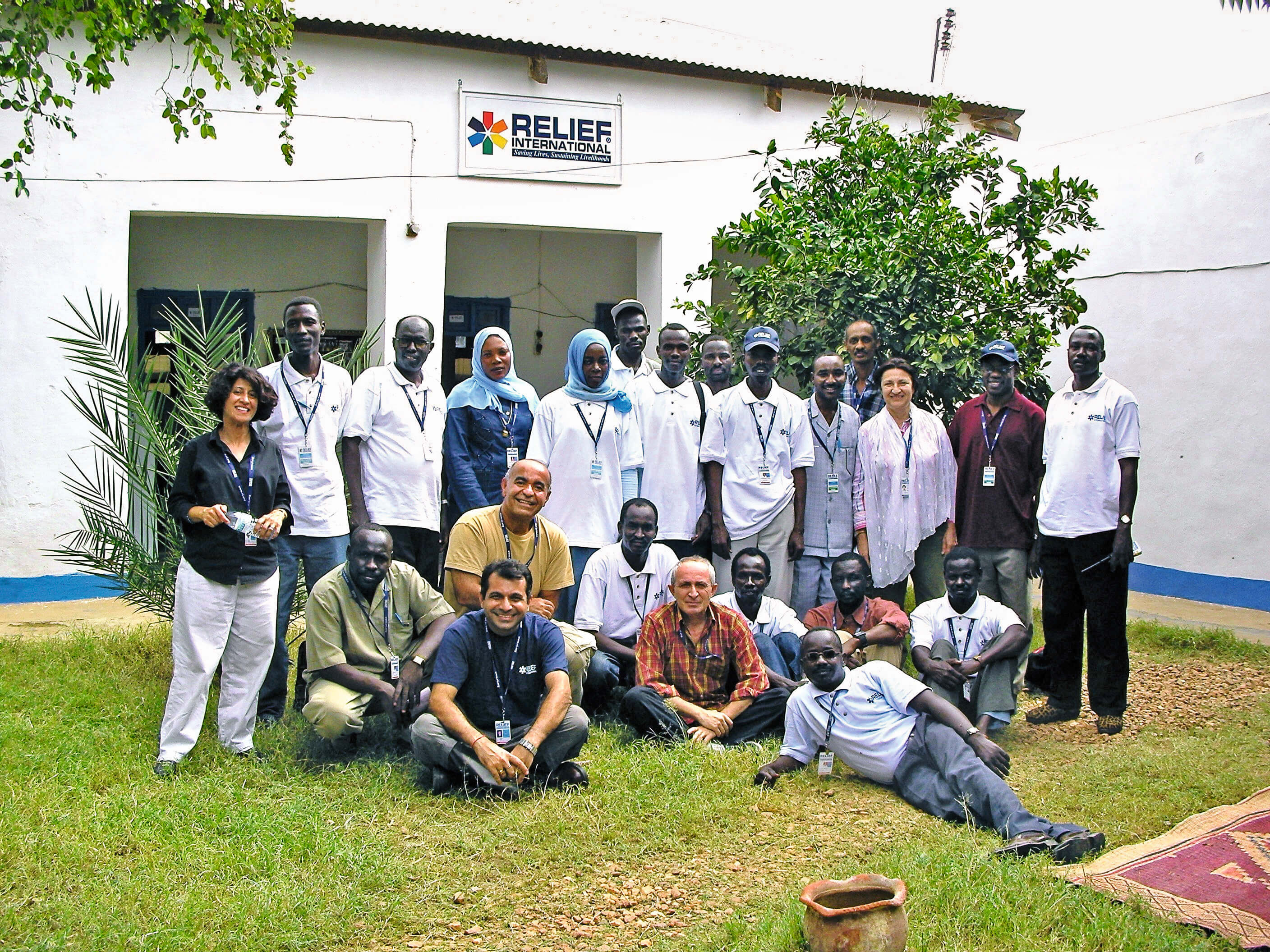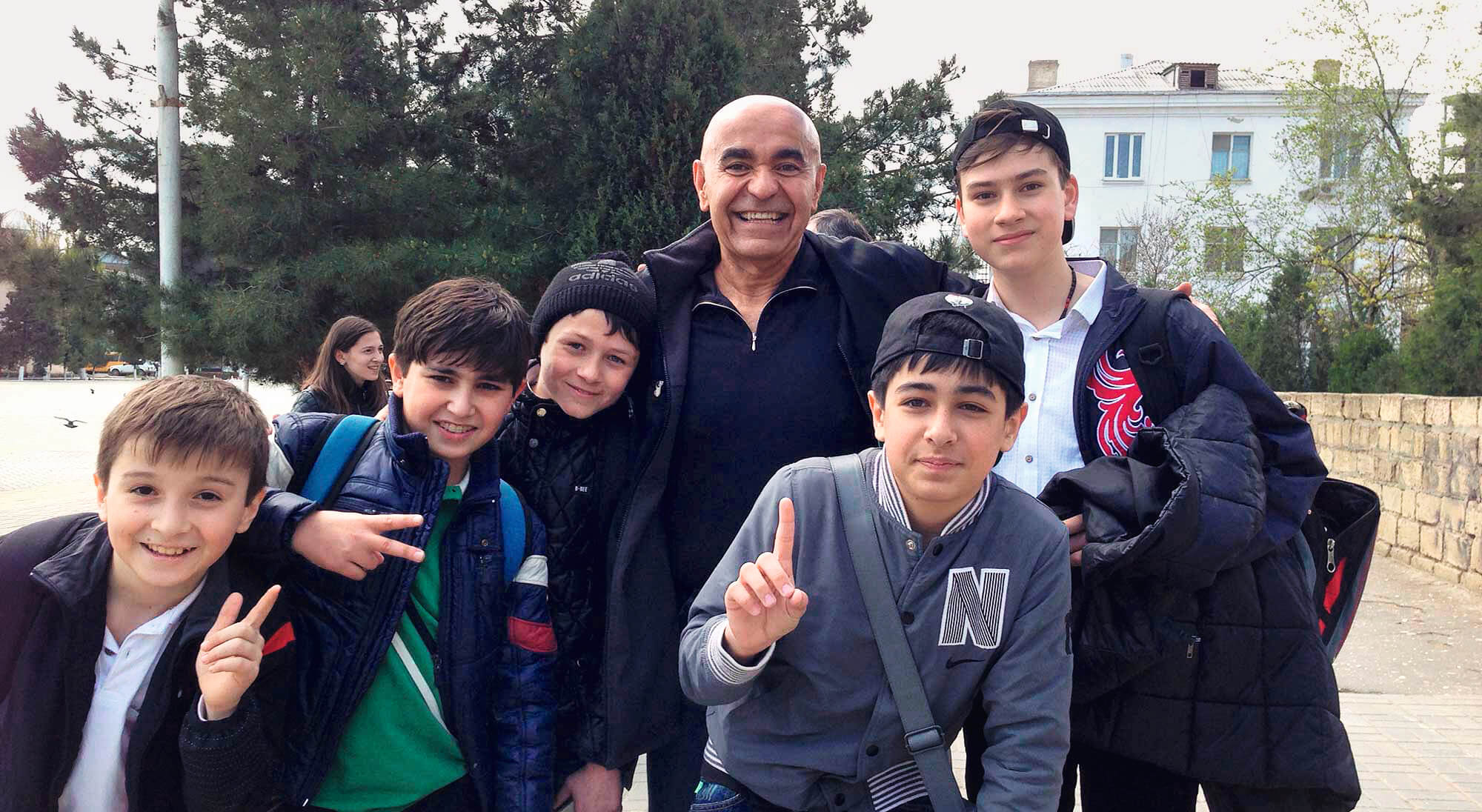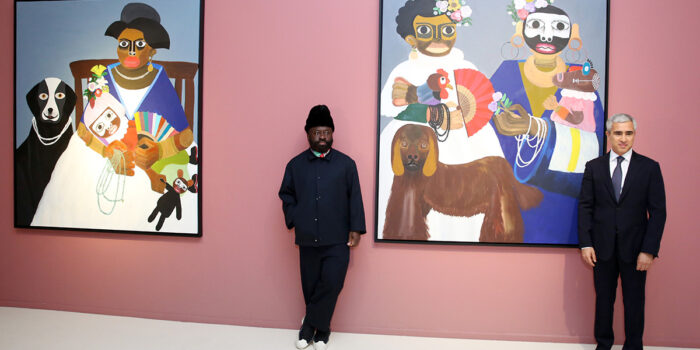Iranian-born Silicon Valley entrepreneur and philanthropist Kamran Elahian believes that less is more, failure breeds success and that access to computers and the internet is key to making the world a better place, discovers Julia Llewellyn Smith
You can tell a lot about Kamran Elahian by the fact the licence plate on his red Audi R8 reads Momenta. It’s a testament to Elahian’s time as founder of Momenta, a pre-Internet precursor to the iPad, which was one of the biggest flops in Silicon Valley history, using up $40m in financing, before filing for bankruptcy in less than three years.
For Elahian, who had been fired as Momenta’s CEO six months earlier, this was one of the lowest points in an otherwise dazzling career. The son of an entrepreneur who set up a chain of spectacles shops, he left his native Iran aged 18, before the revolution, to study computer science at the University of Utah. He was 27 when he co-founded chip company CAE Systems.
“It was 1980, right at the time of the Iranian hostage crisis – not a good time to be seeking investments,” Elahian recalls. “Investors would look at me and say: ‘Well, immigrants make great engineers, but you want to be CEO?’ The only CEOs at the time were white, tall, older men in their 40s or 50s, and I was young, short and chubby.”
Elahian was turned down more than 90 times but finally investors offered him the $1.8m he needed to set up CAE Systems. Three years later, he sold the company for $75m. He went on to found nine more tech companies, six of which went public with a total share value of more than $8bn. He then set up Global Catalyst Partners in 2000, a global venture-capital firm with $350m invested in leading-edge technology companies in countries as diverse as the US, India, Singapore, Japan and Israel. But rather than celebrate those triumphs, Elahian, now 64, prefers to commemorate his flops. “Seeing Momenta on my car keeps me humble,” he laughs. “You remember your flaws and the problems you encountered. It warns you – don’t get in over your head.”
Keep it Humble, Keep it Real
With a face-splitting smile and jovial aura, Elahian comes across as the personification of down-to-earthness. Sitting in a hotel lobby in London, which he’s visiting from his Silicon Valley home for a conference, he’s dressed in a black T-shirt, black jeans and sneakers, with a laptop bag slung over his shoulder. Leading as simple a life as possible is something Zohre, his wife of 40 years, insists upon – with the luxury of just one fast car every few years. “Zohre is my hero; we’ve known each other since childhood and have always thought differently from most people,” Elahian grins. “Both our families wanted a big wedding but we chose to marry with just seven people present. She didn’t wear white, I didn’t wear a suit, her ring cost $28 and mine cost $32 as I have fatter fingers. We’re not interested in what society calls the norm.”
It was at Zohre’s insistence that Elahian, when he first made his fortune, didn’t embark on the traditional spending spree. “We were living in a nice four-bedroom house but my colleagues were buying palaces, airplanes, big boats, vacation homes and everyone was expecting us to do the same,” Elahian recalls. “But then Zohre and I made a trip to Gaza. The taxi driver dropped us off on the Israeli side and we had to carry our luggage across the wall to the Palestinian side. It was a hot day and we were tired and sweaty when we arrived. A man invited us into his house to rest. He lived in one tiny dilapidated room with his mother and three children, but he offered us some of his food. As we left, Zohre turned to me and said: “If I ever hear from you that we should upgrade to a bigger home, we are done!’ I said ‘OK, I apologize! Forget about it’.”
It taught Elahian an important lesson. “I realized that the world is not the same as it is in your mind. You can be a refugee and feel rich because you give something to somebody else, or you can be a multi-billionaire and still want more and more,” he reflects. “I’m not against having a good life but beyond a nice home, car and vacation why do you need the rest of your money? So many of the rich people I know are worried about the stock market – is it up or down one point? But we have no worries, there are few days in our lives when we don’t wake up with a lot of smiles and have a lot of fun.”
The Joy is in the Giving
He was inspired instead to use this wealth to help humanity. In 1996 Elahian founded Schools-Online, and over the following seven years, not only were 6,400 schools in 36 countries provided with computers and internet access, but also more than 10,000 teachers were trained in using computers and the internet. Then, in 2003, Schools-Online merged with Zohre’s humanitarian charity Relief International, enabling children from developing and war-torn countries to communicate with the rest of the world, and by 2009 it had an annual budget of $45m and with more than 2,000 employees spread across 25 countries. “Zohre and I never wanted our own children, but we have a lot of compassion for kids,” he says. “And we’d also learned from our own family’s experiences. Both our grandparents were refugees from the Russian Revolution, and then my parents were in the US during the Iranian Revolution. They lost everything and never returned. So, we are very aware how vital it is for young people to be global citizens. It is when people only know their own culture or religion that we see these crazy, violent wars.”
Impressed by his achievements, the United Nations appointed Elahian the co-chair of UN GAID, the global forum working to help economies develop through information and communication technology. During Elahian’s two years there, Zohre attended Stanford University, studying subjects such as alternative energy. Her studies made the couple acutely aware that the imminent rise of solar power was going to mean good news for the environment, but bad news for countries whose revenues depended on oil and gas. Further research by Elahian into these nations revealed that the vast majority, including Azerbaijan, are in the AMENA (Asia, Middle East and North Africa) region and that most of the countries also had a Muslin majority. He also found a high correlation between the fall in oil and gas prices and a rise in terrorism. “These countries have huge numbers of young people without jobs, who find they have no choice but to turn to crime of become gang members, or they’re targeted by terrorist organizations who promise them respect and a good life,” Elahian explains.
Investing in Youth
Intent on doing something to address these issues, Elahian’s Global Catalyst Foundation aimed to create 10 million ‘iTechnopreneur’ jobs in 10 years in the countries affected (iTechnopreneurship, a term coined and trademarked by Elahian, refers to high-tech entrepreneurship leveraged by broadband internet). “The internet and the cloud have changed everything ,” he enthuses. “For the first time in our evolution, young, creative people with a very small amount of money can use their brands to create wealth out of nothing, without interference from the older generations, who in the past needed to give their blessing.”
One area where the foundation has made huge waves is in sub-Saharan Africa. Elahian is especially proud of Bernard, a young Kenyan man, disabled since birth. “He has an amazing brain and he runs a tech incubator in Nairobi that consists of 50 companies, one of which has just received an $8m investment from venture capitalists. Recently we helped him obtain a scholarship and visa to attend a two-week tech venture-capital programme at Stanford University.”
Elahian also cites the work of Maryam in Dar es Salaam, Tanzania, the manager of a hub for aspiring technology entrepreneurs, currently developing new smart solar panels that can alert a household by mobile phone if electricity supplies are running low, and Rahim, in Nairobi, the CEO of an innovation hub devising drones to deliver medicine to far-flung areas. “As soon as he knew I was in town he came to see me and said: ‘I hear you are a venture capitalist, why don’t you invest $300m in my company?’ I was so impressed by his confidence.”
Elahian was also bowled over by a recent visit to a coding club in Kigali, Rwanda, where children of 13 and 14 showed him the websites they’d set up. “They were so young and cool, I love them dearly and I love the fact that the Africa I know is a very different Africa from the coverage you usually see where people are presented as passive victims.”
As ever, Elahian is keen to stress that the key for this new generation of iTechnopreneurs is – like him – not to fear failure. “In Silicon Valley companies go bust all the time – it doesn’t matter,” he says. “If a company collapses after two years, in that time it will still have hired five people, and each one needed a chair, a desk and a computer, which all creates a circular economy. The companies that are successful will make so much money they will hire the employees of the companies who’ve gone under. Look at my experience: you might lose, but you’re only a loser if you don’t try again.”
Elahian’s Azerbaijan Projects
Kamran Elahian’s projects in Azerbaijan are all geared towards increasing digital literacy, fostering community, and bringing much-needed resources to regions lying outside Azerbaijan’s major city centres
Community Information Resource Centres
Public libraries are once again being put at the heart of communities by holding basic computer literacy courses in 10 of them in Azerbaijan. Training in social entrepreneurship, including small financial seed funds to help provide basic resources for budding entrepreneurs,
is also on offer.
School Connectivity and Global Citizenship
This initiative provides digital resources (in the form of Internet Learning Centres) to 12 schools across five districts along the Baku-Tbilisi-Ceyhan pipeline. These will allow students and teachers to connect via a dedicated programme website, enabling students to increase their computer literacy and engage with the world on a more profound level.
Teacher Professional Development
Who doesn’t remember the one teacher who really made a difference to their life? Good teachers are crucial and this programme seeks to hone the information and communication skills of Azerbaijani educators. Through a series of activities, including role play, they are taught new conceptual ideas and skills they can use in the classroom.
Images courtesy of Kamran Elahian
